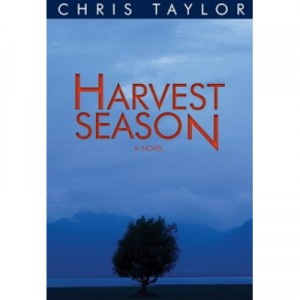 In my opinion, Chris Taylor’s Harvest Season is a better story, better told, than Alex Garland’s The Beach.
In my opinion, Chris Taylor’s Harvest Season is a better story, better told, than Alex Garland’s The Beach.
I compare the two books only because each involves “backpackers” on the Asia trail. Taylor’s story unfolds in relatively remote China, whereas The Beach is set in what are supposed to be islands in the Gulf of Thailand. With Harvest Season, though, I have a much surer sense that the writer is indeed familiar with his geographical and subcultural settings. That is probably because the author is a professional travel writer with much experience in Asia.
This book, Taylor’s first novel, is very readable. The drama unfolds on the basis of a great premise. The dialogue is competent, the characters, both Western and Chinese, are intriguing and real, the settings convincing, and the background issues contemporary and interesting.
We find a mixed bag of protagonists in Shuangshan, a still fairly traditional community suffering intimations of radical change to come. On the one hand, the local ethnic population has already felt impacts from Han Chinese settlement (to some extent reflecting a deliberate policy of social and cultural homogenization). On the other hand, Shuangshan is clearly an early Khao San Road (Bangkok) or Thamel (Kathmandu) in the making.
Some of the characters, including Matt, the main protagonist, are Western travelers who see themselves as a community of exiles in search of freedom from all the bullshit back home. To make this work, they want to maintain, as much as they can, the exclusivity of their Shangri-La of choice. Others, more recent arrivals, see the situation both as a commercial opportunity and as a chance to become large frogs in this small pond. For their part, the Chinese characters include parallel representatives of all those species and more—new entrepreneurs, exiles from mainstream Chinese society in search of freedom, and local vested interests.
With a growing sense of inevitability, we see increasingly dangerous conflicts arising within and between the Western and Chinese groups.
Meanwhile the fires of the mass tourist hordes are glowing just over the horizon. The “Rough Planet” guides and their ilk have already blazed trails in the vicinity, and Shuangshan teeters on the cusp of change. Matt is a youngish traveler with an obscure past, one he’s reluctant to talk about. But we do learn that, several years earlier, he himself worked as a Rough Planet writer. Hey, someone’s going to do it anyway, right? But he left Shuangshan out of his reports, wanting to keep this particular paradise off the beaten path, all the while knowing it was futile.
The story unfolds during his second stay in Shuangshan, when the futility of this dream is being brought home with greater and greater force. “In the Shuangshan I’d returned to a year ago,” Matt says, “nobody got tattoos to celebrate their first acid trip.” Yet here was his friend Fei-Fei getting a tattoo and “now Shuangshan had marked her permanently, and she would always belong to the fringe.”
By the end of the novel, a number of the characters have been scarred and worse by other, darker developments.
Readers and characters are left with a poignant sense of loss at various levels. Already, local residents no longer recognize the community of their childhoods. And now there seems to be no avoiding catastrophic commercialization of this erstwhile hideaway for the walking wounded from a global consumerist culture.
Matt also suffers a personal sense of loss he might find hard to articulate. Against the background described above, he has pursued unsuccessful relationships with two different Chinese women. To some extent the problems are cultural in nature, but Matt is alienated from his own culture to the extent he might well have problems, at this stage, in establishing long-term relations with any woman, no matter where she’s from.
And now he’ll have to move on again.
Chris Taylor’s website
